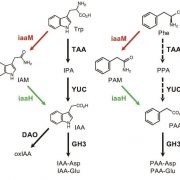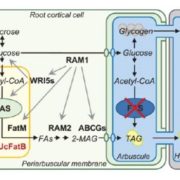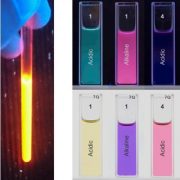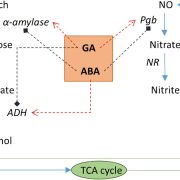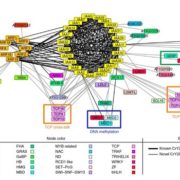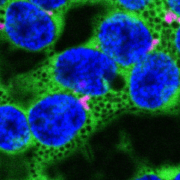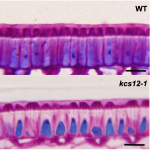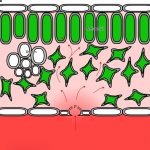A prion-like protein regulator of seed germination undergoes hydration-dependent phase separation ($) (Cell)
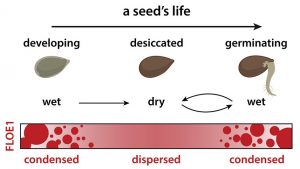 Seed imbibition (i.e., water uptake) marks the beginning of germination, an irreversible process that might lead plants to death if it occurs under unsuitable conditions for seedling development. Therefore, it is expected that seeds only germinate when water is readably available. However, the molecular mechanism behind this control remains to be described. In this fascinating research, Dorone and colleagues provide a thorough description of FLOE1, a prion-like protein that allows Arabidopsis thaliana seeds to sense water availability. FLOE1 is accumulated during embryo development and can form cytoplasmatic condensates in response to hydration. floe1 mutants had higher germination under water deficit conditions, suggesting this protein prevents germination under stressful situations. However, the loss of the function of this protein did not impact abscisic acid and gibberellin balance, a renowned regulator of germination. Overall, these results imply that FLOE1 controls germination by assessing water availability in the environment. Interestingly, the analysis of different A. thaliana ecotypes showed that FLOE1 expression was correlated with climate, indicating the importance of this protein for local adaptation. While future studies must assess the precise molecular function of FLOE1, this research provides an exciting starting point to unravel the mechanism that allows seeds to sense water. (Summary by Carlos A. Ordóñez-Parra @caordonezparra) Cell 10.1016/j.cell.2021.06.009
Seed imbibition (i.e., water uptake) marks the beginning of germination, an irreversible process that might lead plants to death if it occurs under unsuitable conditions for seedling development. Therefore, it is expected that seeds only germinate when water is readably available. However, the molecular mechanism behind this control remains to be described. In this fascinating research, Dorone and colleagues provide a thorough description of FLOE1, a prion-like protein that allows Arabidopsis thaliana seeds to sense water availability. FLOE1 is accumulated during embryo development and can form cytoplasmatic condensates in response to hydration. floe1 mutants had higher germination under water deficit conditions, suggesting this protein prevents germination under stressful situations. However, the loss of the function of this protein did not impact abscisic acid and gibberellin balance, a renowned regulator of germination. Overall, these results imply that FLOE1 controls germination by assessing water availability in the environment. Interestingly, the analysis of different A. thaliana ecotypes showed that FLOE1 expression was correlated with climate, indicating the importance of this protein for local adaptation. While future studies must assess the precise molecular function of FLOE1, this research provides an exciting starting point to unravel the mechanism that allows seeds to sense water. (Summary by Carlos A. Ordóñez-Parra @caordonezparra) Cell 10.1016/j.cell.2021.06.009


